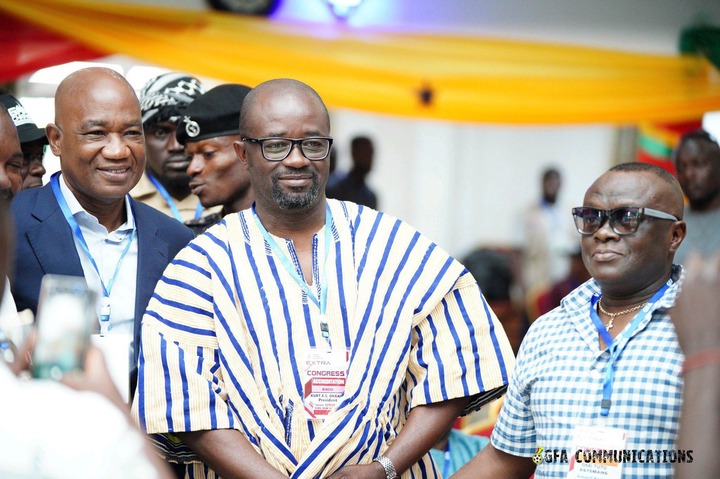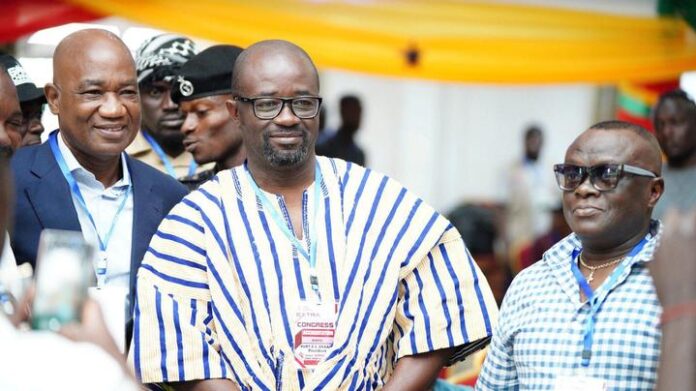
According to a report from Ghanaweb. The Black Stars of Ghana have long been revered as one of the most dominant forces in African football. With a rich history marked by exceptional achievements, the national team has been a symbol of pride and inspiration for Ghanaians and African football enthusiasts alike. From their historic triumph in the Africa Cup of Nations (AFCON) in 1963 to their captivating performances in the FIFA World Cup, the Black Stars have cemented their place among the continent’s footballing elite.
The team’s journey to greatness began with their inaugural AFCON victory in 1963, when Ghana lifted the prestigious trophy on home soil, heralding a new era in African football. Under the leadership of legendary coach Charles Kumi Gyamfi, the Black Stars showcased their prowess, winning their second AFCON title in 1965. This set the foundation for Ghana’s reputation as a football powerhouse, with two more continental victories in 1978 and 1982.
Ghana’s presence on the global stage further strengthened in the early 2000s. After years of near misses, the Black Stars made their FIFA World Cup debut in 2006, held in Germany. The team’s performance was nothing short of remarkable, advancing to the Round of 16 before being eliminated by Brazil. However, it was the 2010 World Cup in South Africa that truly captured the world’s attention. Ghana came agonizingly close to becoming the first African team to reach the semi-finals, losing to Uruguay in a dramatic quarter-final match that went down to penalties. Despite the heartbreak, the team’s spirited run inspired a generation and elevated the Black Stars’ global profile.
For many years, Ghana’s national team epitomized hope and motivation, with its talented roster of players and strong tactical leadership. However, since 2019, a noticeable decline in the Black Stars’ performances has raised serious concerns about the team’s future on both the continental and international stages. What was once a formidable and cohesive unit has struggled to recapture its former glory, with inconsistent displays and early exits in major tournaments becoming more frequent.
One of the critical turning points in this decline came during the 2019 AFCON, where Ghana was eliminated in the Round of 16 by Tunisia. The team’s inability to advance deep into the tournament was a stark contrast to their previous performances, leaving fans and analysts questioning the direction of the national team. The disappointment continued into subsequent competitions, including the 2021 AFCON in Cameroon, where Ghana was knocked out in the group stage after failing to win a single match – a result that shocked the footballing world.
Many factors have contributed to the Black Stars’ recent struggles. One of the most significant issues has been the frequent turnover of coaches, which has led to a lack of stability and continuity within the squad. Ghana has seen multiple managerial changes in a short span of time, each new coach bringing a different tactical approach and vision for the team. This has disrupted the chemistry and progress that had once made the Black Stars such a formidable force.
Additionally, the pool of players has also undergone significant changes, with several of Ghana’s seasoned veterans retiring or experiencing a dip in form. The team has struggled to replace key figures such as Asamoah Gyan, the nation’s all-time leading scorer, who played pivotal roles in Ghana’s successful World Cup campaigns. The influx of young and relatively inexperienced players, while promising, has not yet fully bridged the gap left by the departure of these influential stars.
Another concern has been the Ghana Football Association’s (GFA) handling of team management and player development. Critics have argued that the GFA has failed to implement a long-term strategy to groom emerging talents and build a squad capable of competing at the highest levels. The lack of a clear developmental pipeline has left the Black Stars in a state of transition, with many players struggling to adapt to the demands of international football.
Moreover, the team’s performances in the ongoing qualification campaigns for major tournaments have done little to restore confidence. Ghana’s path to the 2022 World Cup in Qatar was fraught with difficulty, and although the Black Stars managed to secure qualification, their overall display raised concerns about their ability to compete against the world’s best teams. Similarly, the team’s performance in the ongoing 2025 AFCON qualifiers has been less than convincing, leaving many to wonder whether the Black Stars can regain their competitive edge in time for future tournaments.
Despite the challenges, there is hope that Ghana’s national team can rebound and once again assert itself as a powerhouse in African football. The current generation of players, led by emerging talents such as Mohammed Kudus and Kamaldeen Sulemana, has the potential to revive the Black Stars’ fortunes. However, success will depend on building a cohesive team with strong leadership both on and off the pitch.
The future of the Black Stars also hinges on the ability of the GFA to implement strategic reforms that prioritize player development, coaching stability, and a clear vision for the team’s growth. Lessons from Ghana’s footballing past suggest that the right combination of talent, tactical discipline, and administrative support can propel the Black Stars back to the top of African football.
As the Black Stars navigate this period of transition, Ghanaian football fans remain hopeful that their beloved team can reclaim its position among Africa’s elite. With the right blend of youth and experience, and a renewed focus on building a winning culture, the Black Stars can write a new chapter in their storied history, one that mirrors the triumphs of the past while charting a bold path for the future.
